Earning an online corrections degree can enable you to learn about this specialized field of criminal justice that’s intended to help rehabilitate criminal offenders.
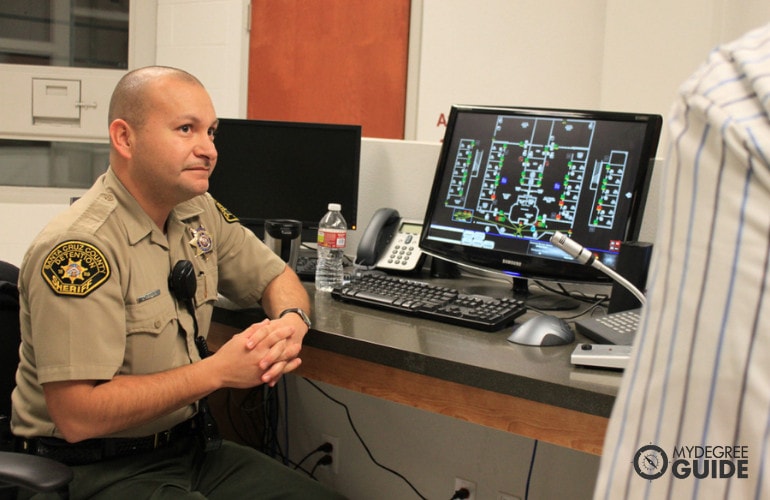
A corrections major blends knowledge of law, psychology, sociology, and related subjects. You can have the opportunity to study law enforcement, criminology, the court system, and the operations of prisons and rehabilitation centers.
Editorial Listing ShortCode:
Thanks to the availability of online learning options, you may earn your bachelors degree in corrections while you continue to work or maintain other commitments.
Online Corrections Degrees

While earning your corrections degree, you will likely take courses in juvenile justice, criminal law, criminal investigations, policing, behavioral science, counseling, and related topics. Some corrections degree programs enable you to choose a concentration based on your interests and career goals.
Common corrections subfields include:
- Correctional assessment
- Community corrections and rehabilitation
- Special populations in corrections
- Corrections administration
An online corrections degree may help you qualify to pursue jobs in criminal justice, case management, and related fields.
Common careers in the corrections field include:
- Probation officer
- Correctional treatment specialist
- Addiction counselor
- Mental health counselor
- Correctional officer
- Bailiff
Probation officers visit offenders who are on probation to ensure that they’re meeting the requirements of their probation. On the other hand, correctional treatment specialists provide supervision to inmates who are in custody.
Editorial Listing ShortCode:
Substance abuse, behavioral disorder, and mental health counselors work with those who have drug addictions or related issues, with the goal of helping them to overcome their problems.
Correctional officers supervise inmates within jail or prison, maintaining order and safety among inmates. Bailiffs are also known as court officers since they act as law enforcement officers for courtrooms.
Corrections workers often work in the public sector for local, state, or federal government agencies. Some privately owned rehabilitation facilities may also hire graduates of corrections degree programs.
Corrections Careers & Salaries
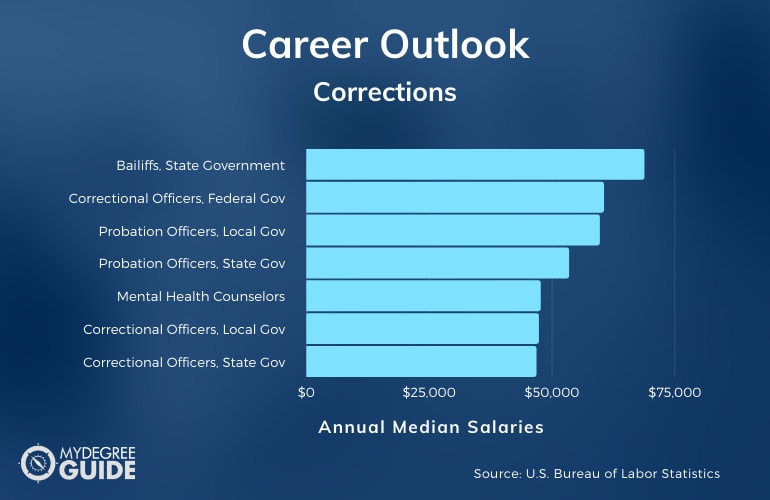
Professionals in the field of corrections tend to work as bailiffs, correctional officers, substance abuse counselors, probation officers, and correctional treatment specialists.
According to the Bureau of Labor Statistics, the median annual salary for protective service occupations is $43,710.
| Careers | Annual Median Salaries |
| Bailiffs, State Government | $68,760 |
| Correctional Officers, Federal Government | $60,540 |
| Probation Officers and Correctional Treatment Specialists, Local Government | $59,690 |
| Probation Officers and Correctional Treatment Specialists, State Government | $53,430 |
| Substance Abuse, Behavioral Disorder, and Mental Health Counselors | $47,660 |
| Correctional Officers, Local Government | $47,290 |
| Correctional Officers, State Government | $46,800 |
| Bailiffs, Local Government | $42,100 |
| Correctional Officers, Facilities Support Services | $41,980 |
| Probation Officers and Correctional Treatment Specialists, Social Assistance | $38,520 |
Bailiffs are usually employed by the state or local government, and correctional officers are usually employed by the federal, state, or local government. Meanwhile, probation officers and correctional treatment officers are usually employed by the state or local government. They can also work in the social assistance industry.
Corrections Curriculum & Courses

Here are some examples of courses you might take while earning a degree in corrections:
- Foundations of Corrections: This course will introduce you to the field of corrections with a broad overview.
- Management of Correctional Facilities: In this course, you’ll learn about the administrative and supervisory practices that are used to run correctional facilities.
- Special Populations in Corrections: In this course, you’ll study the treatment of vulnerable groups within the prison population, including women, racial minorities, the elderly, and people with mental or physical disabilities.
- Offender Rehabilitation: In this course, you’ll study counseling, family interventions, and other practices that are used with the intent of helping criminal offenders change their behavior.
- Community Corrections: In this course, you’ll study various models for assessing, punishing, or treating criminal offenders. You’ll also discuss the controversies and social dialogues that surround these various models.
- Human Rights: In this course, you’ll study what human rights are, what rights prisoners have, and how to ensure that their rights are not violated.
- Criminal Justice: In this course, you’ll study the law enforcement and legal processes that lead to criminal offenders being identified and sentenced.
- Probation and Parole Policy: In this course, you’ll study the laws that regulate probation and parole.
- Correctional Facility History: In this course, you’ll learn about the history of prisons and how our society arrived at the current system.
- American Prison Systems: In this course, you’ll study the operations of prisons specifically within the United States.
Exact course titles and requirements can vary from one degree program to another. Some programs may require the completion of an internship. Internships can offer practical work experience and the chance to apply your knowledge.
How to Choose an Online Degree in Corrections Program

Here are some factors you may want to consider when choosing an online degree program in corrections:
- Is the program fully online, or does it have in-person requirements? Some programs might require completing an internship or attending occasional meetings or events on campus.
- How long will the program take to complete? Some programs may require 4 years of full-time enrollment, while others may offer accelerated courses to enable you to move through the program faster.
- Do you prefer synchronous or asynchronous learning? In a synchronous online program, you attend class at the same time as other students. In an asynchronous program, you complete all of the coursework, including listening to lectures, on your own schedule.
- How big is an average class size? You may prefer a smaller program in which you will get more individual attention.
- What is the school’s transfer policy? If you have already earned some college credits, you may want to find out how many of them will transfer to your new school before enrolling.
- How much will it cost? You may want to compare different schools’ tuition rates and other fees, including what kinds of financial aid they have available for their students.
It may help to look at several different programs to ensure you’re choosing the school that best aligns with your professional goals and learning needs.
Admissions Requirements

Here are some common admissions requirements for online bachelor’s degree programs in corrections:
- High school diploma or GED
- GPA of at least 2.0
- Letters of recommendation
- Personal statement or essay
Many schools also ask for SAT or ACT scores, but a growing number of schools no longer require standardized test scores. Admissions requirements can vary considerably from one college to another. You can usually find information about a specific school’s admissions requirements by visiting its website.
Accreditation

The accreditation status of your prospective school can be an important factor to consider before enrolling in a degree program.
If you decide to transfer at some point, your course credits are more likely to be accepted by your new school if they were earned at an accredited school. Attending an accredited school is also a precondition for qualifying for federal financial aid.
Editorial Listing ShortCode:
Regional accreditation is granted to colleges and universities by various outside accrediting agencies. Schools usually name their accrediting agency on their websites.
For more information on the subject of regional accreditation, you can visit the Council for Higher Education Accreditation’s website. CHEA also has a database of accredited schools.
Financial Aid and Scholarships

If you want to go to college, you may be concerned about how you will pay for tuition, books, and other associated costs.
There are many different types of financial aid available for college students who qualify. Financial aid is also available to qualifying students who are enrolled in online degree programs.
You might qualify for state or federal financial aid, or you may even qualify for grants or scholarships from the school you are attending. You can also search for scholarships that are specifically intended for students who plan to major in corrections or related fields.
To apply for federal financial aid, you can start by filling out the Free Application for Federal Student Aid (FAFSA).
Corrections Professional Organizations

Here are some professional organizations for those who work in the field of corrections:
- Academy of Criminal Justice Sciences (ACJS)
- American Correctional Association (ACA)
- International Association of Correctional Training Personnel (IACTP)
Membership in a professional organization can provide opportunities to network with others in your field and to learn from more experienced members of the profession.
Some professional organizations host meetings, provide their members with opportunities for continuing education, or give their members access to trade journals and other publications.
Advantages of Getting a Degree in Corrections
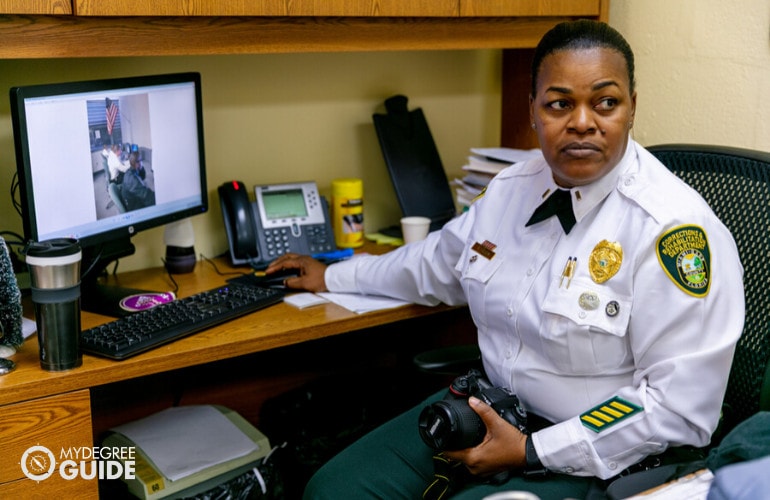
Not all jobs in the field of corrections necessarily require college degrees, but having a degree can give you foundational training and a competitive edge.
A college degree is sometimes necessary, though, for managerial and supervisory roles. While it is possible to work in the field of corrections with or without a college degree, workers with college degrees may be able to qualify for higher-paying positions.
Corrections degree programs also offer concentrations that can help prepare you with specialized knowledge and skills that can give you an edge in the job market. Specialty areas in the field include juvenile corrections and corrections administration.
What Is the Role of Corrections in the Criminal Justice System?

Corrections is a subfield within criminal justice that specializes in the treatment of convicted criminal offenders. This subfield has four goals: retribution, deterrence, incapacitation, and rehabilitation.
Retribution means ensuring that criminals are subject to just punishments. Deterrence means decreasing the likelihood that the criminal will choose to re-offend. Incapacitation means preventing offenders from being able to commit crimes again, and rehabilitation means helping offenders to become productive members of society.
Editorial Listing ShortCode:
All of these goals ultimately come down to trying to lower crime rates and maintain the safety of the community.
What Can You Do with a Corrections Degree?

With a corrections degree, you could pursue a number of roles within the correctional system.
Common career paths include bailiff, correctional officer, and probation officer. There’s also a variety of administrative and managerial positions at prisons, detention centers, and other types of correctional facilities. Some professionals in the field train to become substance abuse counselors at rehabilitation centers.
Employment opportunities can vary with job market conditions. Plus, you can often qualify for a wider variety of positions as you gain more work experience.
How Long Does It Take to Get a Degree in Corrections Online?
A bachelor’s degree typically takes 4 years to complete if you attend full-time and follow a traditional 16 week semester.
Some online criminal justice degree specialization programs offer accelerated options with 8 week long classes. If you follow this schedule and also take classes year-round, you may be able to finish your degree in less time. Alternatively, if you only attend school part-time, it might take you longer to complete your degree.
Is a Bachelor’s Degree in Corrections Worth It?

Yes, a bachelor’s degree in corrections is worth it for many students. According to the Bureau of Labor Statistics, many jobs in the field of corrections are growing. For instance, employment of probation officers and correctional treatment specialists is expected to grow 4% over the next decade.
The Bureau of Labor Statistics projects 25% growth for substance abuse, behavioral disorder, and mental health counselors, which is much faster than the average growth. Many professionals find corrections to be a rewarding field. As society looks for ways to improve the correctional system, now may be a good time to begin pursuing an education in corrections.
Universities Offering Online Bachelors in Corrections Degree Programs
Methodology: The following school list is in alphabetical order. To be included, a college or university must be regionally accredited and offer degree programs online or in a hybrid format.
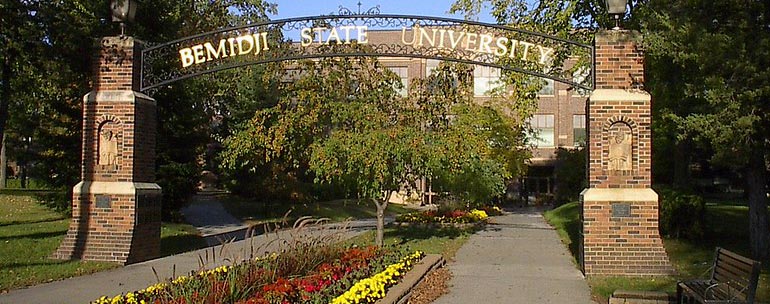
Bemidji State University offers a Bachelor of Science in Criminal Justice with the option to add a concentration in Corrections. To graduate, students must complete 120 credit hours, with 48 credits dedicated to the major. Applicants may apply online with official high school transcripts and ACT or SAT scores.
Bemidji State University is accredited by the Higher Learning Commission.
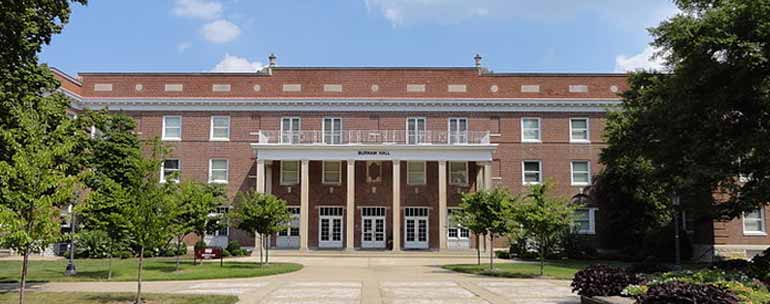
Eastern Kentucky University offers a Bachelor’s in Corrections and Juvenile Justice Studies. The online program requires students to complete 120 credits to graduate.
Classes are 8 weeks long. Courses begin 6 times per year. Applicants must have a GPA of 2.5 or higher. ACT or SAT scores aren’t required but can be submitted to bolster applications.
Eastern Kentucky University is accredited by the Southern Association of Colleges and Schools Commission on Colleges.

Lee University offers a Bachelor’s in Criminal Justice with an emphasis on Corrections. To graduate, students must complete 120 credit hours, with 24 hours dedicated to the emphasis. Applicants must have 3 years of experience outside of high school to be able to apply. Official transcripts and ACT or SAT scores are required.
Lee University is accredited by the Southern Association of Colleges and Schools Commission on Colleges.
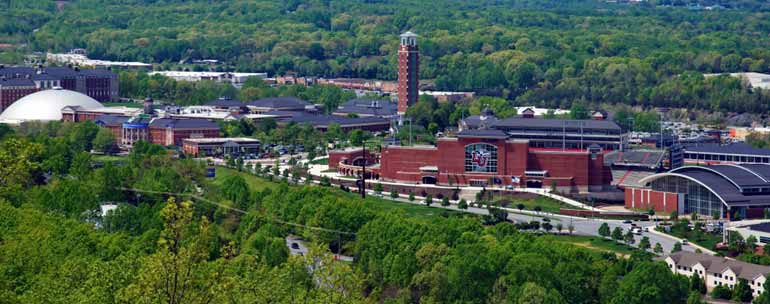
Liberty University offers a Bachelor of Science in Criminal Justice in Corrections and Human Services. Classes are offered online and are 8 weeks long. The program requires 120 credits to graduate and can typically be completed in 3.5 years. Applicants must have a GPA of 2.0 or higher to be eligible.
Liberty University is accredited by the Southern Association of Colleges and Schools Commission on Colleges.

North Carolina Central University offers a Bachelor of Science in Criminal Justice. Students may choose to add a concentration in Corrections to their degree. To graduate, students must obtain 120 credit hours. Applicants may apply online through the school’s website with their official transcripts from high school and test scores.
North Carolina Central University is accredited by the Commission on Colleges of the Southern Association of Colleges and Schools.
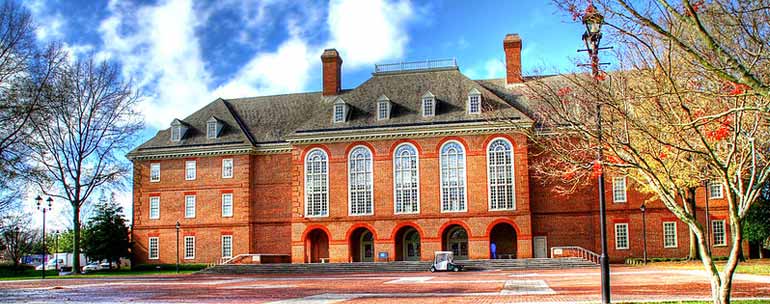
Regent University offers a Bachelor of Science in Criminal Justice with a concentration in Corrections. Students must complete 120 credit hours to graduate. Courses can be taken online or on campus. To be eligible for the program, applicants must apply online with transcripts, an admissions questionnaire, and government-issued ID.
Regent University is accredited by the Southern Association of Colleges and Schools Commission on Colleges.
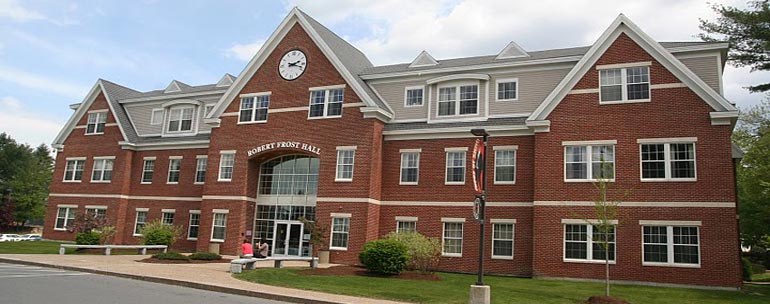
Southern New Hampshire University offers an online program for a Bachelor of Science in Criminal Justice with the option to add a concentration in Corrections.
To graduate, students must complete 120 credit hours, with 12 credits dedicated to the concentration. Applicants may apply online with official transcripts and proof that they’ve graduated from high school or have a GED.
Southern New Hampshire University is accredited by the New England Commission of Higher Education.
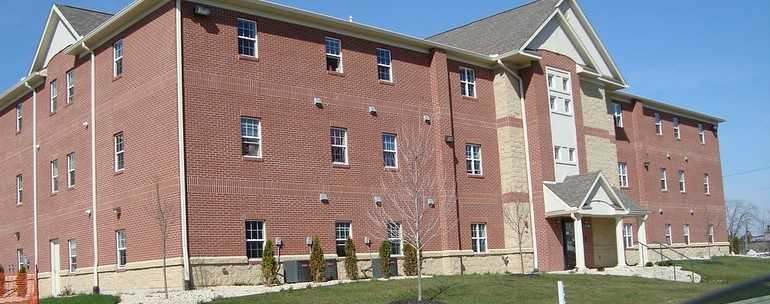
Tiffin University offers a Bachelor of Criminal Justice with a concentration in Corrections. Online students can complete two terms per semester. To be eligible for the program, applicants must have a GPA of 2.0 or higher from high school. Online applicants can have their application fees waived.
Tiffin University is accredited by the Higher Learning Commission.
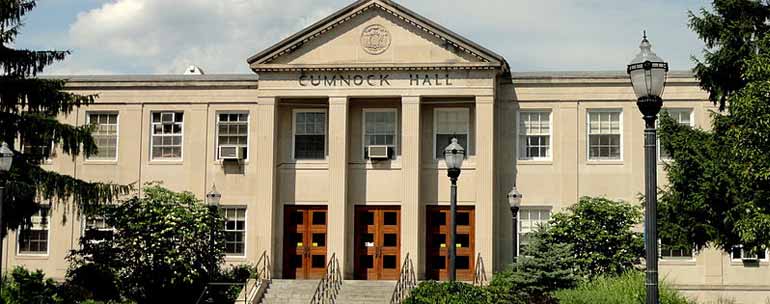
The University of Massachusetts—Lowell offers a Bachelor of Science in Criminal Justice and Criminology with the option to add a concentration in Corrections.
Students must complete 120 credit hours to graduate. Applicants can apply online and must submit their ACT or SAT scores, school transcripts, a personal essay, and a letter of recommendation.
The University of Massachusetts Lowell is accredited by the New England Commission of Higher Education.
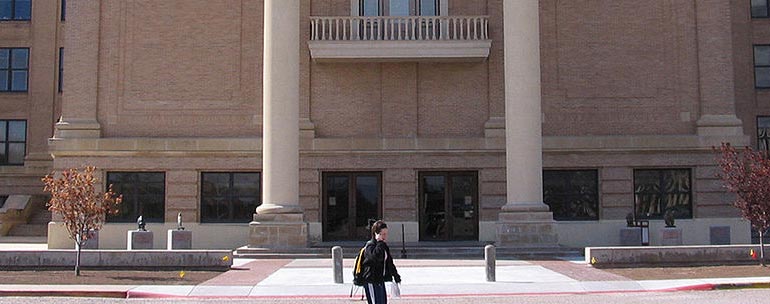
West Texas A&M University offers both a Bachelor of Arts and a Bachelor of Science in Criminal Justice with a concentration in Corrections. In both programs, students must complete 120 credit hours to graduate. Applicants must have a high school GPA of 2.0 or higher and submit either ACT or SAT scores.
West Texas A&M University is accredited by the Southern Association of Colleges and Schools Commission on Colleges.
Getting Your Corrections Degree Online

If you are interested in entering the field of corrections or expanding your career opportunities, you might consider earning your bachelor’s degree in corrections online.
Even some of the best criminal justice schools offer online degree programs that can be an affordable and convenient way to earn a degree, especially if you want to balance your education with work or other responsibilities. Online learning usually allows for flexible scheduling, so you can plan your education in the way that best suits you.
There are many options available for pursuing corrections degrees online. You can start your educational journey today by exploring the various corrections degree programs offered by accredited universities.

